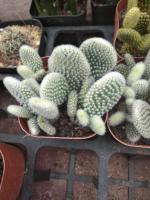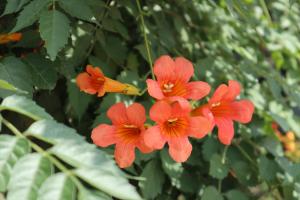Introduction
Plants and trees are essential for life on Earth. They provide oxygen, food, and shelter for various forms of life. However, during the pollination season, they can be a source of allergies and discomfort for some people. Therefore, it is essential to know when the plants and trees stop pollinating to prepare accordingly.
What is Pollination?
Pollination is the process by which pollen grains from the male reproductive part of the plant (stamen) are transferred to the female reproductive part (pistil). This can happen through various means, such as the wind, water, or animals like bees or butterflies. When pollen lands on the stigma of the pistil, it can grow into a new plant, making pollination a crucial step in reproduction.
When do Plants and Trees Pollinate?
The pollination season varies depending on the type of plant or tree. Some plants and trees pollinate in the spring, while others pollinate in the summer or fall. Generally, plants and trees pollinate when they are in bloom, and the flowers are open. This is when the pollen is most readily available to be carried away by pollinators or the wind. However, some species of plants and trees can continue to produce pollen throughout the growing season.
When do Plants and Trees Stop Pollinating?
Plants and trees stop pollinating when their flowers are no longer in bloom. This can happen when the flowers have been fertilized, or the growing season has come to an end. In general, the pollen count will decrease as the flowers begin to wither and die off. Therefore, the end of the blooming season is a good indication of when the plants and trees will stop pollinating.
How to Reduce Exposure to Pollen
If you suffer from allergies or are sensitive to pollen, there are several ways to reduce your exposure. One way is to stay indoors during peak pollen times, usually early in the morning and late in the afternoon. It is also helpful to keep windows closed and use air conditioning in your home or car. Additionally, wearing a mask can help to filter out pollen when outside. Finally, taking antihistamines or other allergy medications can help to alleviate symptoms.
Conclusion
Knowing when plants and trees stop pollinating can help to alleviate allergies and make the pollination season more manageable. While the exact timing varies depending on the type of plant or tree, the end of the blooming season is a good indication of when the pollen count will decrease. By taking precautionary measures, such as staying indoors during peak pollen times, it is possible to reduce exposure and enjoy the benefits of plants and trees without discomfort.

 how many times do yo...
how many times do yo... how many planted tre...
how many planted tre... how many pine trees ...
how many pine trees ... how many pecan trees...
how many pecan trees... how many plants comp...
how many plants comp... how many plants can ...
how many plants can ... how many plants and ...
how many plants and ... how many pepper plan...
how many pepper plan...






























